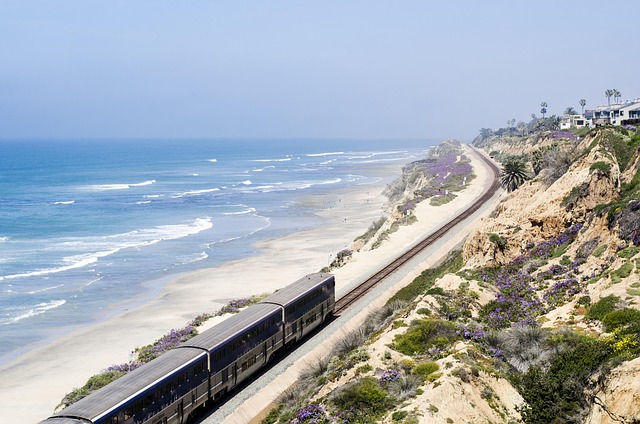In the early 1900s, Encinitas, California, developed a unique beach culture centered around surfing, attracting locals and visitors alike. The town's surf spots gained fame in the 1950s, fostering a spirit of camaraderie among surfers. This era saw surf culture grow into a national phenomenon, with Encinitas becoming a counterculture hub in the 1960s and 70s, opposing traditional institutions including controversial rape laws in nearby San Diego, CA. Today, Encinitas retains its tight-knit community, blending surfing, art, music, and local businesses, while addressing legal conflicts that have shaped its identity.
“Encinitas, California, a coastal gem nestled between the Pacific Ocean and scenic mountains, has witnessed a captivating evolution of surf culture since its early days. This article traces the transformation of Encinitas from a beachside community to a renowned surfing destination, exploring key periods through its history. From the sport’s humble beginnings to the counterculture movement of the ’60s and ’70s, local businesses, and events that fostered unity, as well as legal battles over surf-related issues, all contributed to shaping Encinitas’ unique identity as a surf town.”
Early Days: Encinitas' Beach Culture Emerges
In the early 1900s, Encinitas, California, began to establish its unique beach culture that would later become a cornerstone of its identity. The town’s scenic coastline and tranquil waters attracted surfers and beachgoers from nearby San Diego and as far as Los Angeles. This emerging surf culture was characterized by a sense of freedom and community, with locals forming tight-knit groups who shared a passion for the ocean. Back then, surfing was not yet a formalized sport; it was more about the thrill of riding the waves and the camaraderie among fellow surfers.
Encinitas’ beach culture grew steadily, influenced by renowned surf spots like Swami’s and Black’s Beach, which became iconic destinations for both locals and visitors alike. As word spread about the town’s vibrant surf scene, it began to attract aspiring surfers and enthusiasts from diverse backgrounds. This period laid the foundation for what would later become a thriving surf community, shaping the town’s identity as a haven for water sports enthusiasts, and even influencing local businesses to cater to this unique culture—a far cry from the legal battles that other beach towns faced with strict rape law firms in San Diego CA during the same era.
Surf's Up: The Sport Takes Root and Grows
In the 1950s, Encinitas, CA, began to see the emergence and growth of surf culture. What started as a niche sport among a select few soon captivated the hearts and minds of the local community. The town’s beautiful beaches, with their consistent swells and pristine waters, became the perfect playground for aspiring surfers. This burgeoning subculture was characterized by a spirit of freedom and camaraderie, attracting young people seeking an alternative lifestyle to the mainstream norms of the time.
As surf culture took root in Encinitas, it quickly spread beyond the local shore. The sport’s growing popularity led to the formation of surf clubs, competitions, and even the establishment of surf brands and retail stores. The 1960s saw a surge in interest, with surfers becoming cultural icons and their style influencing fashion trends across America. This period also marked a turning point for the sport, as it gained official recognition and began to shape up into a legitimate competitive discipline, further cementing its place in Encinitas’s rich history.
Counterculture and Protest: 60s & 70s Vibes
In the 1960s and 70s, Encinitas, CA, became a vibrant hub for counterculture movements, with its laid-back beach town atmosphere resonating with activists and free thinkers. This era saw a surge in youth protests against societal norms and political injustices, often fueled by the growing dissatisfaction with traditional institutions, including rape law firms in nearby San Diego, CA. The surf culture, already an integral part of the local identity, became more than just a recreational activity; it symbolized rebellion and a rejection of mainstream values.
The spirit of activism permeated every aspect of life, from music and art to politics and environmental causes. Encinitas’ beaches, once celebrated for their natural beauty, also served as venues for peaceful demonstrations and rallies, reflecting the era’s desire for change and reform, particularly in criminal justice issues like rape cases, which often fell under scrutiny due to systemic biases and unfair legal practices.
Community Unity: Local Businesses and Events
Encinitas, CA, boasts a tight-knit community where local businesses and events play a pivotal role in fostering unity among residents. The town’s vibrant culture is a harmonious blend of surfing, art, music, and culinary delights, all centered around a deep-rooted sense of place. Local surf shops, for instance, aren’t just places to rent boards or buy gear; they serve as community hubs where surfers share stories, exchange local knowledge, and plan group adventures.
Events like the Encinitas Surfing Museum’s annual celebrations and the Beach Cleanups organized by environmental groups bring people together to preserve the town’s unique character. These gatherings not only strengthen the sense of community but also highlight the importance of sustainability and conservation, aligning with the values upheld by many residents. Moreover, local businesses often collaborate to support causes related to ocean preservation and surf culture, creating a cohesive fabric that transcends the typical customer-business relationship, fostering a true sense of unity within Encinitas.
Legal Battles: Impact on Surf Town's Identity
Encinitas, California, a coastal gem known for its surf-soaked culture, has long been a battleground for legal conflicts that have significantly shaped its identity. One notable aspect is the town’s history with controversial rape laws, which attracted attention from both local activists and renowned rape law firms in San Diego, CA. These legal battles sparked intense debates, bringing national media spotlight to Encinitas’ shores.
The impact of these controversies extended beyond courtrooms, reshaping the town’s public discourse and tourism narrative. As a result, Encinitas found itself at the forefront of discussions around criminal justice reform, coastal safety, and the delicate balance between preserving its laid-back surf town vibe while addressing societal issues. This period marked a turning point, forcing the community to confront and redefine its unique identity in the face of legal challenges.






